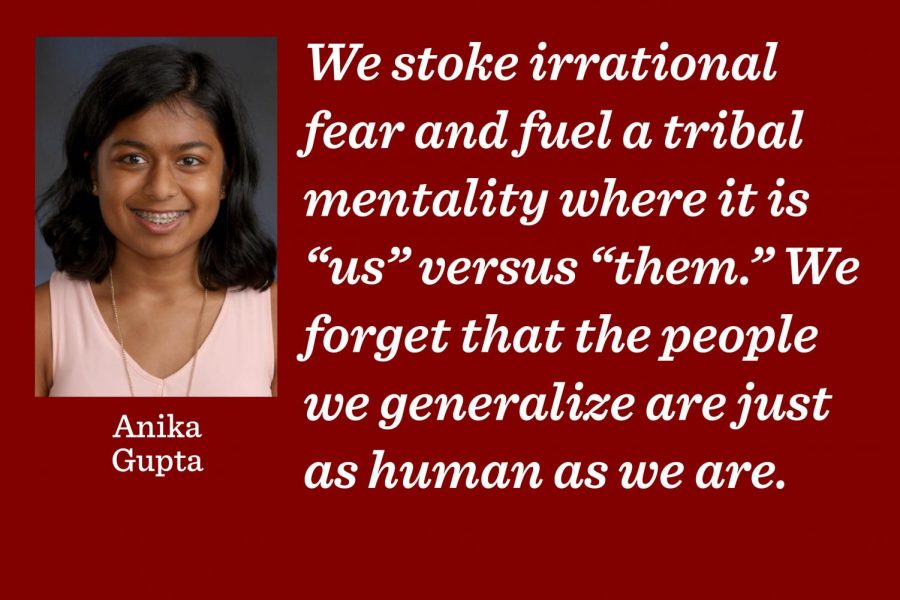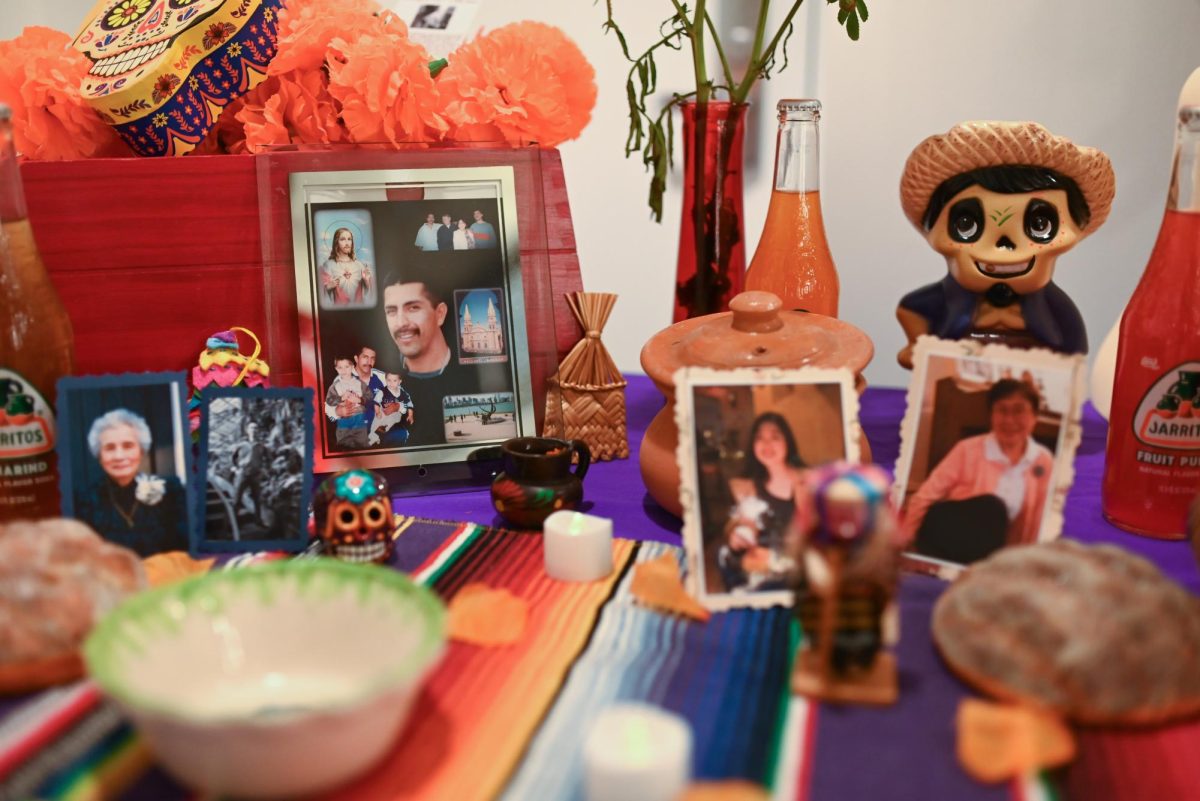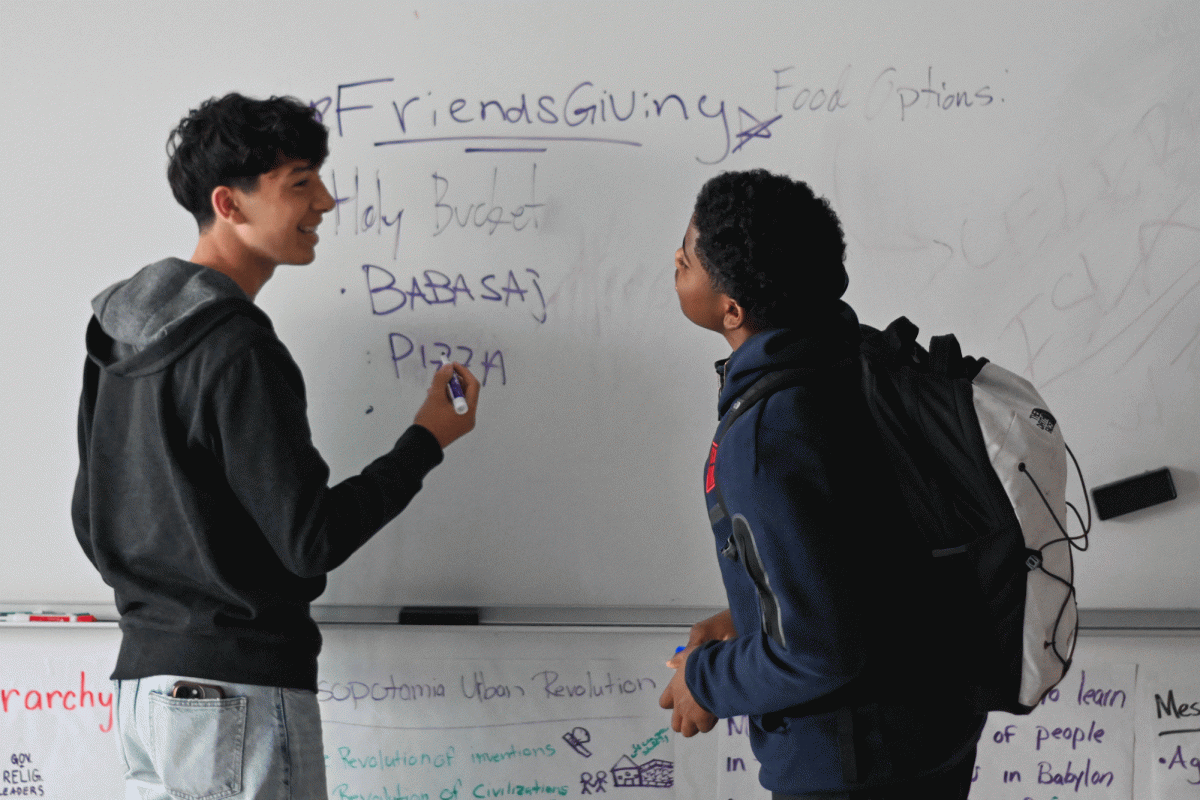Generalizing is degrading to anyone subject to it
January 12, 2020
On Nov. 14 in suburban Naperville, approximately 35 miles west of Chicago, a white freshman at Naperville Central High School posted a Craigslist ad reading “Slave for Sale” in reference to a black student.
This incident struck me with absolute horror. As a Naperville resident, I couldn’t believe something like this would happen in a community I had always felt was caring and inclusive. I felt slightly reassured when on Nov. 18, Naperville Police Chief Robert Marshall said, “Every single person deserves the right to feel safe and welcome in our community, and this department will continue to strive to make that a reality by thoroughly investigating any allegations of hate crimes and bringing those found responsible to justice.”
The teenager who posted the ad was charged with two counts of a hate crime and one count of disorderly conduct. He was then sent to juvenile detention.
My heart broke that such a young person could display such hatred, but I was proud that the Naperville community would not stand for it in the slightest. Then I remembered the offhand comments I have been hearing from my peers since my first year at Lab as a freshman. Hurtful, ignorant comments like the suburbs are “all white” or not inclusive. This appalling ad would serve to fuel those generalizations of the approximately 6 million people living in suburban Chicago.
Six million.
While the suburbs are predominantly white, other races populate them as well. For example, according to a survey run by WalletHub assessing household, religious, socioeconomic, cultural and economic diversity, Aurora, a suburb west of Chicago, ranks 27th among 501 cities in the United States. In Naperville, the Indian flag is raised in City Hall on Indian independence day, Aug. 15. The suburbs are communities where people bake blueberry pies to welcome new neighbors, where front lawns have “Hate has no Home Here” signs and where people truly care about each other.
When we generalize things, we justify separation and dehumanization. We stoke irrational fear and fuel a tribal mentality where it is “us” versus “them.” We forget that the people we generalize are just as human as we are. Our targets are stripped of their individuality and rifts that last generations are created.
It is always easy to take one incident and use it to define an entire population. We dislike the unknown and generalizations are a simple way to define the unknown. It is harder to use experience and logic to explore something and then form a belief. Unfortunately, in order to progress as a united body, the hard way is the only way.
We need to acknowledge that we are all dynamic beings, that everybody deserves the same consideration we extend to ourselves. We need to be stronger than our fear of the unknown, to step out of our comfort zones and learn about things as they truly are, not as we want them to appear. We need to listen and understand before we form opinions that hurt people. Because that’s what generalizations do: they hurt people.
So the next time we feel the urge to say something is all this or all that or more specifically, the suburbs are all white, we need to stop and ask ourselves, “Do we really understand?”
If we decide we don’t, we should try to.












